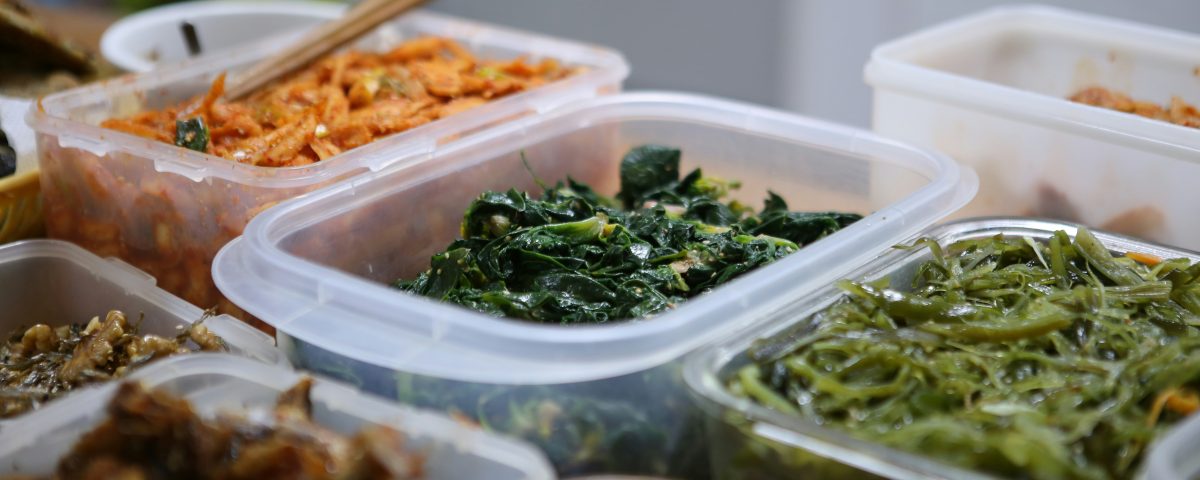- Legacy Planning, Reimagined™
- (310) 344.3015
- [email protected]
The Surprising Connection Between Meal Planning and Estate Planning Done the Right Way
Recently, our colleague shared a story with us. Her son had just moved into his first college apartment and was grocery shopping on his own for the very first time. When he returned from the store, he called her, astonished: “Food prices are outrageous! Can you help me learn how to meal plan so I can shop wisely?” Her 19-year-old was jumping headlong into adulthood – and starting to assess his relationship with time and finances.
This story gave us pause. We came to understand that meal planning encompasses much more than just food—it’s about how you handle your time, money, and energy. It mirrors your values, highlights what is most important to you, and, in many respects, illustrates how you plan for the future. This connection is worth delving into, as the insights gained from meal planning can assist and support your loved ones even after you’re no longer around.
In this article, you’ll find out:
● Why meal planning style reveals your deepest values.
● How protecting your T.E.A.M. resources—Time, Energy, Attention, and Money—applies to both dinner and estate planning.
● Practical strategies to make meal planning (and estate planning) work.
Let’s start by looking at two families who approach meal planning very differently.
Scramble vs. Strategy
The Smith family improvises each week. Maria often finds herself at the grocery store, meandering through the aisles and tossing random items into her cart. By Wednesday, she resorts to ordering takeout since nothing is prepared. By Thursday, the kids are irritable, the budget is exceeded, and they end up having cereal for dinner.
In contrast, the Jones family dedicates 20 minutes every Sunday to planning. Sam reviews the calendar while Mike compiles a list. Tuesday is reserved for soccer practice (crockpot night). Wednesday is date night (leftovers for the kids). Sunday is family dinner with the grandparents. They organize seven dinners, check the pantry, and create a focused grocery list. Their budget remains intact, meals align with their schedule, and they even have contingency plans.
What sets them apart?
The Smiths view time and money as if they are boundless. They make impulsive and reactive choices, prioritizing convenience over intentionality. The Joneses, however, understand that both time and money are finite. They safeguard family dinners, prepare for hectic nights, and manage their resources judiciously.
And here’s a deeper insight: your method of meal planning reflects the same values you apply to securing your family’s future.
How Meal Planning Reveals Your Values
When you take the time to plan your meals, you’re not just deciding what to have for dinner and shopping accordingly. You’re also expressing your relationship with time, money, and your core values. For instance:
● Planning meals around your schedules indicates that you cherish time spent together.
● Preparing in advance for hectic evenings shows that you honor your own energy levels.
● Shopping with a prepared list demonstrates that you regard money as a resource to be used wisely.
● Utilizing family recipes or enjoying Sunday pancakes for breakfast reflects your appreciation for connection and traditions.
These choices go beyond mere food selections; they are choices rooted in your values. They embody the same level of thoughtfulness—or lack of it—that extends into your financial and legacy planning.
When families neglect to plan, the outcome is often chaos, stress, and squandered resources. This holds true whether it’s at mealtime or when your loved ones must manage your affairs after you’re no longer here.
Your T.E.A.M. Resources: Time, Energy, Attention, and Money
Money is the only renewable resource you have. You can always generate more of it. However, your time, energy, and attention? Once they’re spent, they’re gone for good.
Meal planning is one of the easiest methods to safeguard your T.E.A.M. resources:
● Time: Fewer last-minute trips to the store.
● Energy: Reduced stress over what to prepare for dinner.
● Attention: More time for family, less on daily logistics.
● Money: Decreased waste and fewer takeout expenses.
Life & Legacy Planning operates in a similar fashion. It preserves your loved ones’ T.E.A.M. resources when they need it the most:
● Time: They can avoid lengthy court processes and the wait for your assets to be released instead of being frozen after your passing.
● Energy: They won’t expend effort dealing with conflicts among family members.
● Attention: They can concentrate on mourning and healing, rather than struggling to figure out the next steps.
● Money: They save thousands by steering clear of probate fees, taxes, disputes, and the hassle of untangling a legal and financial mess you may leave behind.
Here’s something many people overlook: collaborating with us conserves your T.E.A.M. resources in two ways. The first is now, as we simplify the planning process and guide you through each step. The second is later, because the right plan helps avoid wasted money, time, and stress for your family after you’re gone. Instead, we’ll be there to support them through every step of the journey.
Practical Strategies That Work
The great news is that both meal planning and estate planning become significantly simpler when you have the right system in place. Here are some practical steps for the kitchen—and how they reflect what makes a Life & Legacy Plan effective:
Create a Master List.
● Meal planning: List 7-10 meals that your family enjoys and rotate them regularly.
● Estate planning: Compile an inventory of your assets to ensure nothing is lost and mistakenly handed over to the California Department of Unclaimed Property.
Match Plans to Real Life.
● Meal planning: Select meals that suit your week (like using a crockpot for busy evenings or having leftovers on soccer nights).
● Estate planning: Tailor your plan to fit your unique family dynamics, financial situation, and values.
Shop with a List.
● Meal planning: A well-defined list helps save money and reduces waste.
● Estate planning: A Life & Legacy Plan guarantees that your loved ones won’t squander their T.E.A.M. resources and that they receive support and guidance after your passing.
Have Backup Options.
● Meal planning: Keep three simple “emergency meals” on hand (such as pasta, quesadillas, or breakfast-for-dinner).
● Estate planning: Establish contingencies—backup guardians, alternate trustees, and healthcare proxies.
Review and Adjust Regularly.
● Meal planning: Continuously revisit your plan—what worked? What didn’t? Make adjustments as needed.
● Estate planning: Review your plan at least every three years to ensure it remains relevant to your life circumstances and the law, and functions effectively when your loved ones need it most.
By consistently applying these systems, dinner becomes less of a rush—and so does the future for your loved ones.
Why Planning Ahead is the Greatest Gift
Families often overlook this important fact: when you fail to plan meals, you inadvertently teach your children that scrambling is the norm. Similarly, when you neglect to plan for the future, you convey to your loved ones that their security isn’t worthy of thoughtful planning.
When you plan effectively with a Life & Legacy Plan, you provide your loved ones with the invaluable gift of clarity. You safeguard their time, energy, attention, and finances—allowing them to concentrate on what truly matters: love, connection, and upholding your values. Additionally, you grant yourself peace of mind, knowing you’ve acted in the best interest of those you cherish most.
This is why Life & Legacy Planning encompasses much more than just drafting a collection of documents. It’s about establishing a system that functions when your family needs it, mirroring the values you embody every day.
Bringing It All Together: Your Next Step
While meal planning might appear trivial, it is a significant expression of love. It conserves money, alleviates stress, and safeguards your most valuable T.E.A.M. resources. Moreover, it uncovers a profound truth: your relationship with money and time is currently shaping your family’s future.
Our Life & Legacy Planning process operates on a much larger scale, ensuring that your values—regarding money, time, family, and love—continue to guide your loved ones long after you are gone. Collaborating with us simplifies the process now and preserves your loved ones’ time, energy, attention, and finances in the future.
If you’ve ever experienced the relief of having a meal plan prepared for the week, envision providing your loved ones with that same sense of security regarding their future.
Schedule a 15-minute discovery call with us today, and let’s develop a Life & Legacy Plan that safeguards your resources and your legacy for those you hold dear.
Schedule a complimentary 15-minute consultation to learn more.
This article is a service of Kristen Wong of Seasons Estate Planning, APC, a Personal Family Lawyer® Firm. We don’t just draft documents; we ensure you make informed and empowered decisions about life and death, for yourself and the people you love. That’s why we offer a Life & Legacy Planning Session™, during which you will get more financially organized than you’ve ever been before and make all the best choices for the people you love. You can begin by calling our office today to schedule a Life & Legacy Planning Session™.
The content is sourced from Personal Family Lawyer® for use by Personal Family Lawyer® firms, a source believed to be providing accurate information. This material was created for educational and informational purposes only and is not intended as ERISA, tax, legal, or investment advice. If you are seeking legal advice specific to your needs, such advice services must be obtained on your own separate from this educational material.

